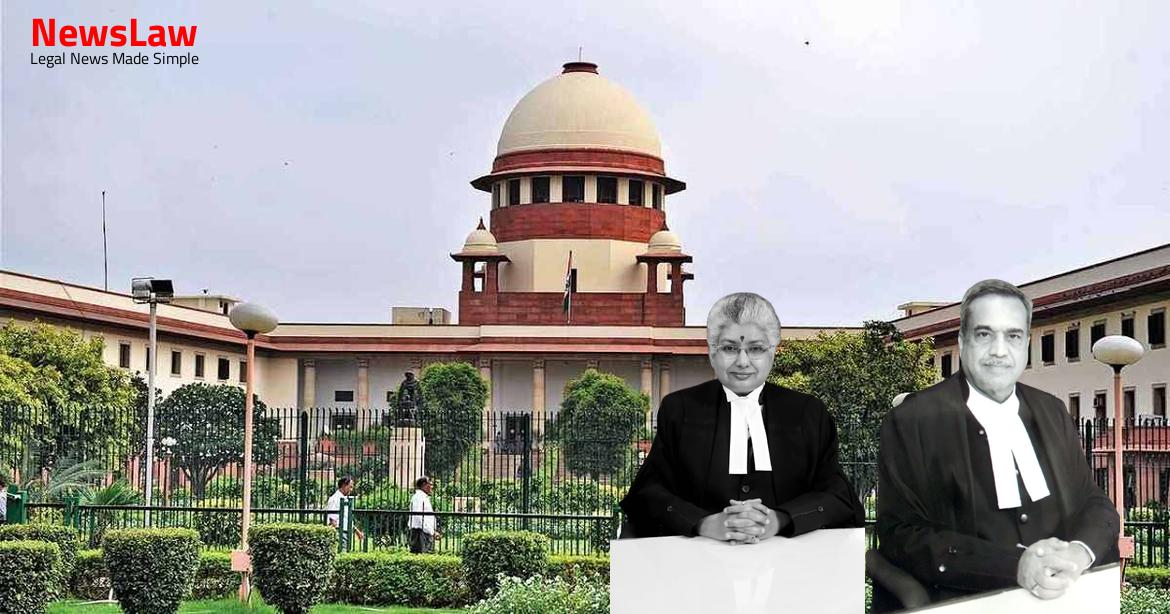Dive into a comprehensive legal analysis of the Rules governing the replacement of lost IVP certificates by the court. The focus is on understanding consumer rights, service deficiencies, and the implications of strict adherence to statutory provisions. Stay tuned for an in-depth exploration of the court’s insights.
Facts
- The O.P. was directed to pay the maturity value of 88 numbers of IVPs totaling Rs.8,80,000/-
- The appellant filed an appeal before the State Commission which was dismissed for non-prosecution
- The matter was then taken to the National Commission through a Revision Petition
- The National Commission upheld the District Forum’s decision to release the maturity value to the petitioner
- A Review Application filed by the appellant was also dismissed by the National Commission
- Arguments were made regarding the alleged deficiency in service by the Post Office
- The complainant sought relief including compensation and cost of litigation
- Appellant contended that no formal application was required for purchasing IVPs as per the Rules
- The appellant argued that the complainant did not qualify as a consumer under the Act
Also Read: Legal Analysis on Arbitration Petition Limitation Period
Arguments
- The respondent, Mr. Upadhyay, argued that the value of the IVPs in question had not been claimed by anyone else.
- The respondent was willing to provide an indemnity bond to the Department, ensuring that if any claim were to arise, he would indemnify the Department.
Also Read: Analysis of High Courts’ Jurisdiction and Court Orders Under Article 142
Analysis
- The Rules regarding replacement of certificates are clearly laid out in Rule 7(1) and Rule 7(2).
- Rule 7(1) allows for replacement of mutilated or defaced certificates upon payment of a fee of one rupee.
- Rule 7(2) specifies that certificates lost, stolen, mutilated beyond recognition, defaced, or destroyed will not be replaced by any Post Office.
- The IVPs in question were purchased through cash, making it impossible to establish the identity of the purchaser.
- The Department was justified in refusing any request for the maturity sum as per the statutory provisions.
- The refusal by the Department did not constitute a deficiency in service, given the lack of identification of the purchaser.
- The Rules were issued by the Ministry of Finance and must be considered in the matter at hand.
- Rule 5 allows for the purchase of IVPs at any Post Office through cash payment or other specified instruments.
- Rule 6(4) states that IVPs are transferable, adding to the complexity of tracing the original purchaser.
- Overall, the analysis focuses on the strict adherence to the governing Rules regarding replacement of certificates and the implications for lost or stolen IVPs purchased with cash.
- A provisional receipt shall be given if a certificate cannot be issued immediately
- The provisional receipt can be later exchanged for a certificate with the specified date
- Rules 5, 6, and 7 detail the procedure for the purchase of certificates at Post Offices
- Certificates can be purchased by cash, locally executed cheque, pay order, or demand draft
- No formal application is required for the purchase of a certificate
- The date of the certificate issuance depends on the payment method: immediate for cash, upon realization for cheques or drafts
- In the case of Central Government of India and others vs Krishnaji Parvetesh Kulkarni, a similar prayer made through a writ petition was rejected by the court.
- The court made observations that an IVP (Invisible Permanent Value Pre-Paid Instrument) is similar to an ordinary currency note.
- The District Forum and the National Commission erred in accepting the claim.
- Without a challenge to the provision, no direction should have been given.
- It is fundamental that no direction contrary to law can be given.
Also Read: Electoral Malpractices in Mayor Election
Decision
- The appeals arise from the final judgment of the National Commission in Revision Petition No.2117 of 2018.
- Orders dated 11.09.2018 and 11.10.2018 in Review Application No.356 of 2018 were also considered.
- The appeals set aside the National Commission’s view and dismiss the original complaint.
- 160 IVPs of Rs.5000 each were reported lost, and the claimants in both this case and an earlier matter are from the same family.
- Similar relief was granted by the District Forum and the National Commission, now under appeal.
- It is noted that only the IVPs were lost in both cases from the same family, raising some suspicion.
- The appeals are allowed for reasons stated in a related Civil Appeal and no costs are awarded.
Case Title: THE SUPERINTENDENT OF POST OFFICE Vs. JAMBU KUMAR JAIN (2020 INSC 247)
Case Number: C.A. No.-001894-001895 / 2020



